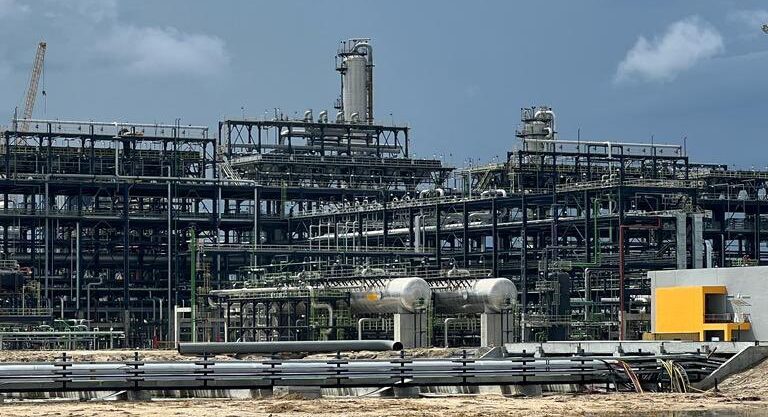By Godwin. Chime Onuegbu
Chief Charles Umuezurike Orie is a prominent Nigerian businessman, philanthropist, and political figure from Umuokanne in Ohaji-Egbema Local Government Area of Imo State. He has served as the Managing Director of the Imo State Oil Producing Areas Development Commission (ISOPADEC), where he implemented initiatives aimed at community development and youth empowerment. His tenure at ISOPADEC was noted for introducing skill acquisition programs, job creation through agricultural initiatives, and scholarship schemes for Imo youths.
During his tenure as MD/CEO of ISOPADEC, Chief Charles Orie demonstrated exceptional leadership and commitment to grassroots development. He built from scratch and fully equipped three ultra-modern hospitals in each of the three oil and gas-producing Local Government Areas of Imo State, significantly improving access to quality healthcare.
In addition, he rehabilitated 20 primary health centers, expanding medical outreach to underserved communities.
Chief Orie also oversaw the construction of a concrete bridge in the Late Senator Athur Nzerebe’s village in Oguta, enhancing transportation and connectivity for local residents.
Furthermore, he built a brand-new Skill Acquisition Center in Awommamma, Oru East LGA.
These achievements are just a few examples of his impactful and people-centered approach to governance.
In 2024, Chief Orie resigned from his position at ISOPADEC to focus on his political aspirations for the 2027 elections. His resignation was accompanied by a commitment to continue serving the people of Imo State through political leadership.
Ten reasons why the Imo State Progressives for Change 2027 Endorsed Him
- A Candidate of the Diaspora
Chief Orie has extensive experience in the Nigerian diaspora, particularly in Canada, where he has been an active member of the community. His global exposure equips him with forward-thinking perspectives and international best practices beneficial for the development of Imo State.
- A Clear Roadmap for Devt
Chief Orie shares our group’s core vision for progressive governance, built on the following guiding principles:
● A. Equity, Justice, and Rule of Law – Upholding fairness, inclusion, and strict adherence to constitutional and legal frameworks that protect the rights and dignity of all citizens.
● B. Transparency and Accountability in Government – Advocating for open governance where leaders are answerable to the people, and public resources are managed with integrity.
● C. Strategic Investment in Key Sectors – Prioritizing infrastructure, healthcare, education, and sustainable development to uplift the quality of life for all.
● D. Diaspora Mobilization, Youth and Women Empowerment, and Job Creation – Leveraging the strength of the diaspora while creating meaningful opportunities for youth and women through entrepreneurship, skills training, and employment.
● E. Peace and Security – Building a safe and stable Imo State where every citizen feels secure and protected.
● F. People-Centered Leadership – Placing the needs, voices, and aspirations of the Imo people at the center of all policies and decision-making.
- “Follow Who Know Road”
This time, the diaspora is focused, informed, and united. There is no room for supporting weak or unproven candidates. Chief Charles Orie understands the complexities of Nigerian politics and is fully equipped to win and govern with competence.
- A Man of Character and Vision
Chief Orie is widely known for his wisdom, humility, and accessibility. He is a great listener who believes in inclusive leadership and open, respectful dialogue with citizens.
- A Progressive Mind Committed to Empowerment
He has empowered countless individuals by funding small businesses and providing scholarships. His selfless contributions have enabled many to become successful, independent, and prosperous.
- A Man of the People
Chief Orie connects deeply with people from all walks of life—regardless of class or status. His compassion, approachability, and empathy have earned him the respect and love of the masses.
- Trustworthy and Reliable
He is a man of his word. Chief Orie honors agreements and upholds personal and political integrity at the highest level.
- Standing for Unity and Fairness
The Imo State Progressives for Change believes that Imo is a homogeneous state with high literacy rate—united by one ethnic group and shared religious values. We consider any form of zoning as divisive, primitive and counterproductive. However, if zoning must be applied, it is only fair that Ohaji, the most marginalized region despite being the state’s vital oil, gas, and agricultural hub, should produce the next governor.
- Strategic and Intellectually Sound
Chief Charles Orie is a brilliant strategist with exceptional intellectual depth—qualities essential for solving the challenges of modern governance and delivering transformational leadership.
- A True Son of the Soil
Born in Ohaji and having lived in Owerri, Chief Orie reflects the joyful, generous, open minded and resilient spirit of the Imo people. He is fully committed to the peace, unity, and inclusive development of our beloved state.
*Dr. Godwin Chime Onuegbu is the Diaspora Director-General Imo State Progressives for Change 2027. The Imo State Progressives for Change (ISPC) is a global political action group committed to championing good governance, equity, and progressive leadership in Imo State, Nigeria. It is a diaspora-led movement, currently active in 25 countries across Africa, Europe, North America, Australia, South America and Asia, united by a shared vision to transform Imo State through visionary leadership, civic engagement, and grassroots mobilization.

